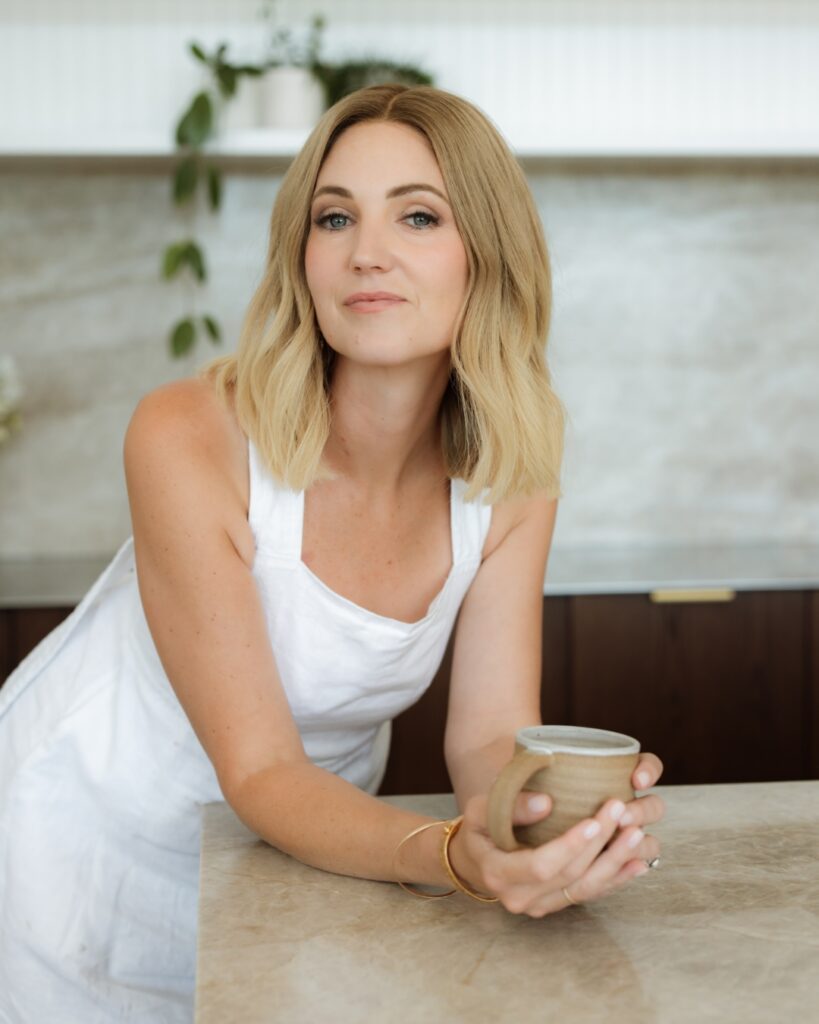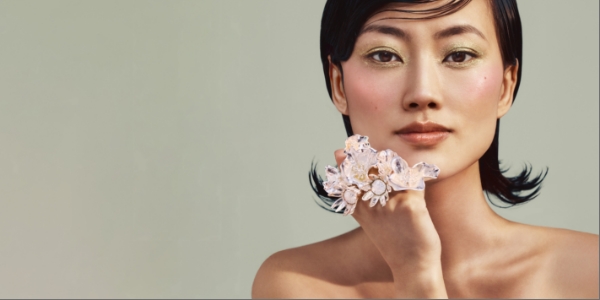Essential oils may be all the rage right now. But in fact, have played a vital role in wellbeing for centuries.
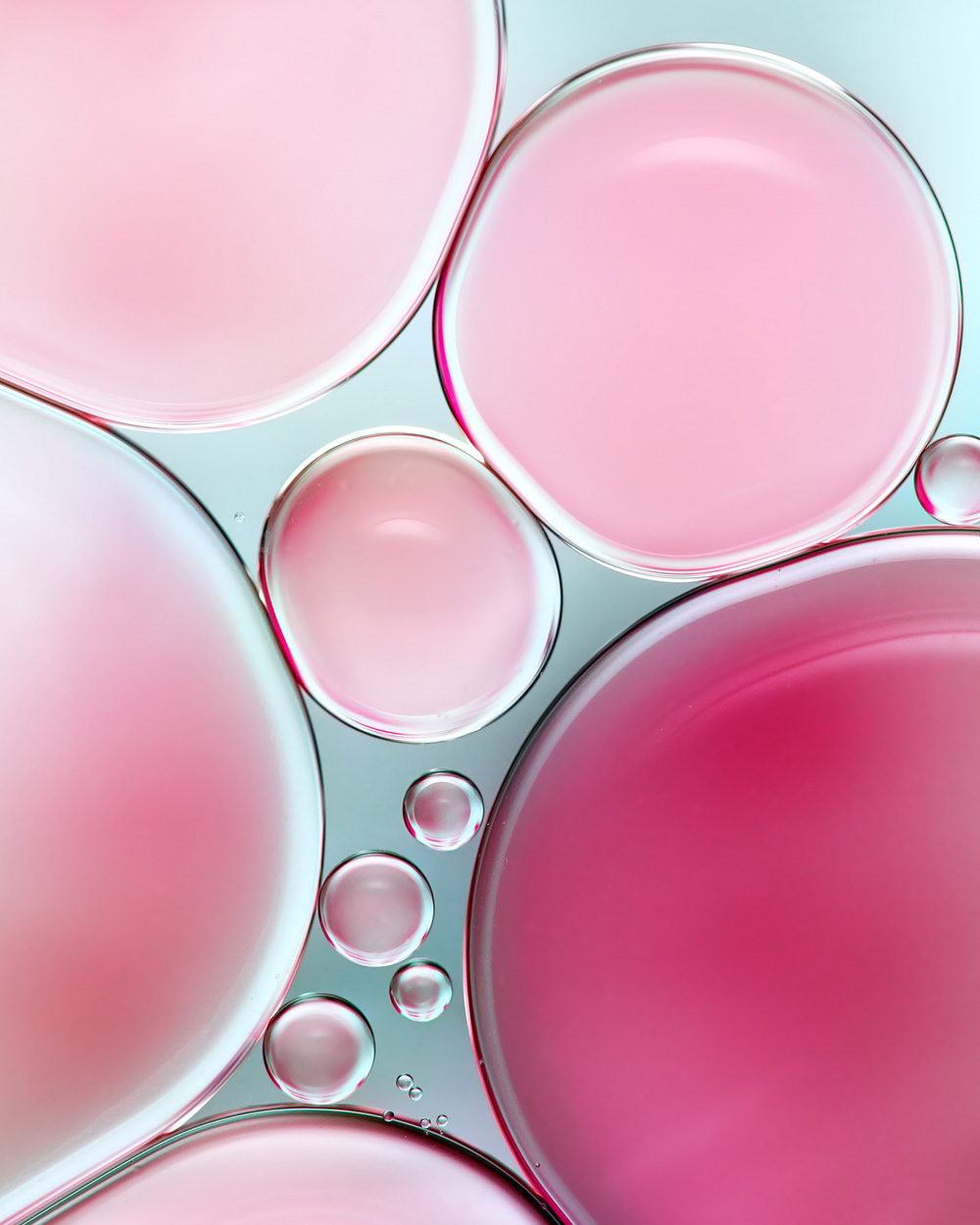
If you’ve ever added eucalyptus to a facial steam when you were blocked up with a cold or tucked away lavender into your pillow when you couldn’t fall asleep, you’re already on your way to discovering how essential oils can be used to enhance your day-to-day life.
Aromatherapy has drawn on the beneficial properties of essential oils for quite some time and, when used the right way, can help you feel better with few side effects. From those undergoing chemotherapy to those with a trivial fungal infection, essential oils can soothe and ease many wellness ailments.
Essential oils have been claimed to relieve stress, anxiety and depression, headaches and migraines, sleep disorders and insomnia, inflammation, and bacterial infections – in addition to many uses when applied in the home, such as natural insect repellants, homemade cosmetics and air fresheners.
However, like many other forms of alternative medicine essential oils have been known to cause controversy from time to time with science not always being able to back up the claims.
What are essential oils?
Essential oils are compounds extracted from plants capturing the scent, flavour and essence. The essence being the unique characters unique to that essential oils characteristics.
How do essential oils work?
Essential oils can be inhaled or diluted and rubbed onto the skin. Think adding them to a bath, sprays, creams or using a diffuser. But make sure you read on for the dos and don’ts as some are not always suitable to be applied to some areas or ingested.
According to Healthline, it is said that inhaling the aromas from essential oils can stimulate areas of your limbic system, which is a part of your brain that plays a role in emotions, behaviours, sense of smell and long-term memory.
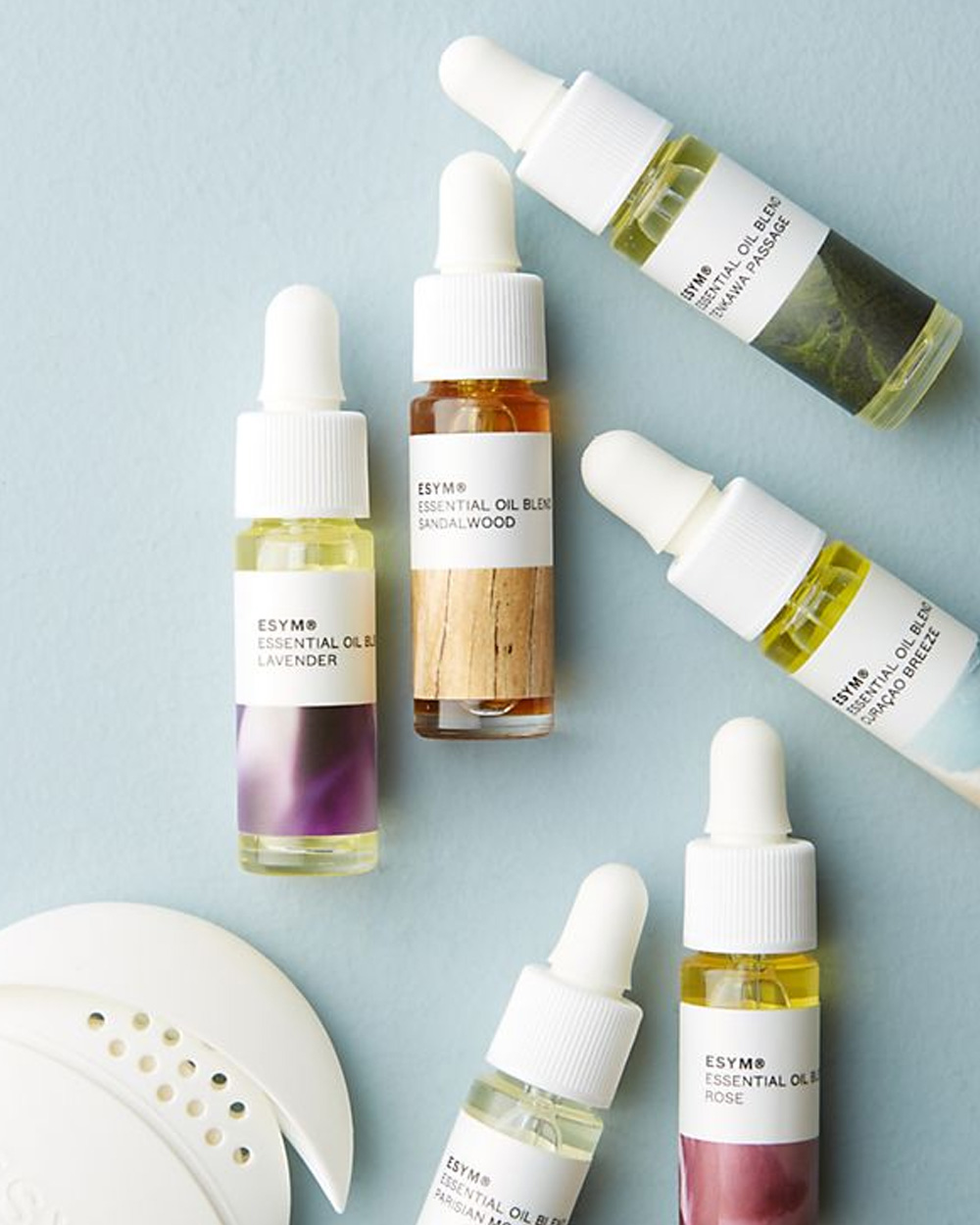 Photo: Anthropologie
Photo: Anthropologie
How many types of essential oils are there?
With more than 90 essential oils available complete with their own unique smell and health benefits, it’s easy to get carried away.
The top ten most popular essential oils include:
- Peppermint: Used to boost energy and help with digestion.
- Lavender: Used for stress relief and restful sleep.
- Sandalwood: Used to calm nerves and help with focus.
- Bergamot: Used to reduce stress and improve skin conditions like eczema.
- Rose: Used to improve mood and reduce anxiety.
- Chamomile: Used for improving mood and relaxation.
- Ylang-Ylang: Used to treat headaches, nausea and skin conditions.
- Tea Tree: Used to fight infections and boost immunity.
- Jasmine: Used to help with depression, childbirth and libido.
- Lemon: Used to aid digestion, mood, headaches and more.
Which essential oil is right for me?
Essential oils for improving concentration: rosemary, basil, peppermint, helichrysum, cedar, vetiver, grapefruit, pine, juniper
Essential oils for energy: lemon, orange, grapefruit, eucalyptus, cinnamon, peppermint, ginger, rosemary, spearmint, black pepper, jasmine
Essential oils for de-stressing: rose, clary sage, frankincense, lavender, bergamot, marjoram, ylang-ylang, lemon, geranium, orange, sandalwood, chamomile, vetiver
Essential oils that help induce sleep: lavender, vetiver, patchouli, sandalwood, ylang-ylang, chamomile, neroli, marjoram, cedar, bergamot, clary sage, frankincense, rose
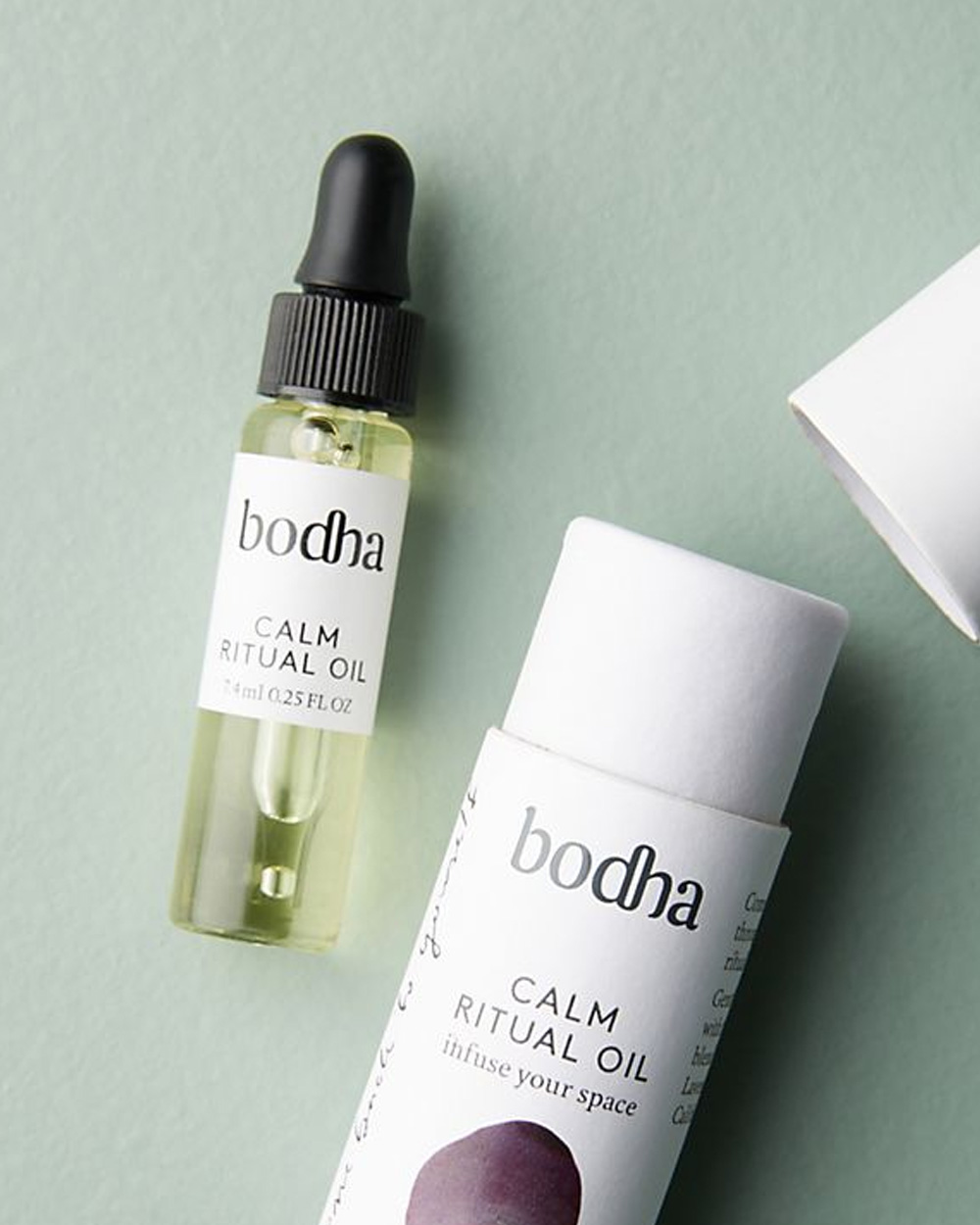 Photo: Anthropologie
Photo: Anthropologie
The dos and don’ts of using essential oils:
- Don’t be tempted to just rub them in anywhere. Some that may be used topically, say on your arms and legs, may not be suitable (or safe) to put inside your mouth, nose, eyes or private areas such as lemongrass, peppermint and cinnamon bark for example.
- When choosing essential oils, always research the brand to verify its quality. Pure oils without any additions are best and reduce the likelihood of causing allergic reactions. However, not all additives are bad; vegetable oil is a normal addition to essential oils that are on the more expensive side.
- Don’t be fooled by labels such as “natural” or “pure”. Like anything you apply to your skin, always test on a small patch of skin first.
- Edible oils are not safe to be applied on your skin. For example, cumin oil – while safe to eat – may cause blistering, and citrus oils can be unsafe when exposed to the sun when applied on the skin.
- Always research your essential oil thoroughly. Just as edible oils aren’t suitable to be applied topically, the opposite can apply too. Eucalyptus or sage oil may soothe you if you rub it on your skin or breathe it in. But swallowing them could cause a serious complication.
- The stronger the percentage of essential oil, the more likely you are to experience a reaction. It’s important to dilute and mix correctly.
- If you experience a reaction, stop using that essential oil. It’s that simple.
- Don’t overdo it. Too much, too often (even if it is heavily diluted) can lead to a reaction.
Miss FQ’s favourite essential oils:
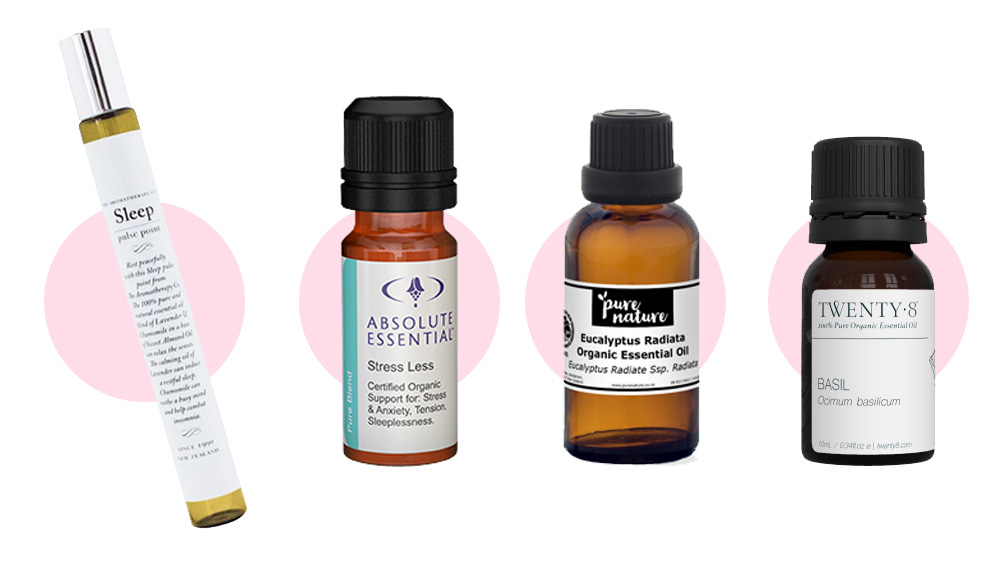
Sleep therapy pulse point, $16 from The Aromatherapy Co.; Stress less, $30 from Absolute Essential; Eucalyptus organic essential oil, $12 from Pure Nature; Basil pure organic essential oil, $33 from Twenty8
Handy tips:
- Store them safely and out of reach from children.
- Double check with your doctor if you’re taking medication as some essential oils may interfere with their efficacy.
- Got damaged skin? Do not apply essential oils. Seriously.
- Essential oils do expire. Anything with a shelf life exceeding three years should be tossed out.
- If you notice any changes to an essential oil such as the way it feels, smells, or looks – throw it out.
- If you’re pregnant essential oils can alleviate the pressure and assist with baby’s growth, just make sure to take extra care and consult your doctor if you’re ever unsure.
Always consult your healthcare practitioner before including essential oils into your regime. Always research the brand and read the care labels thoroughly.





